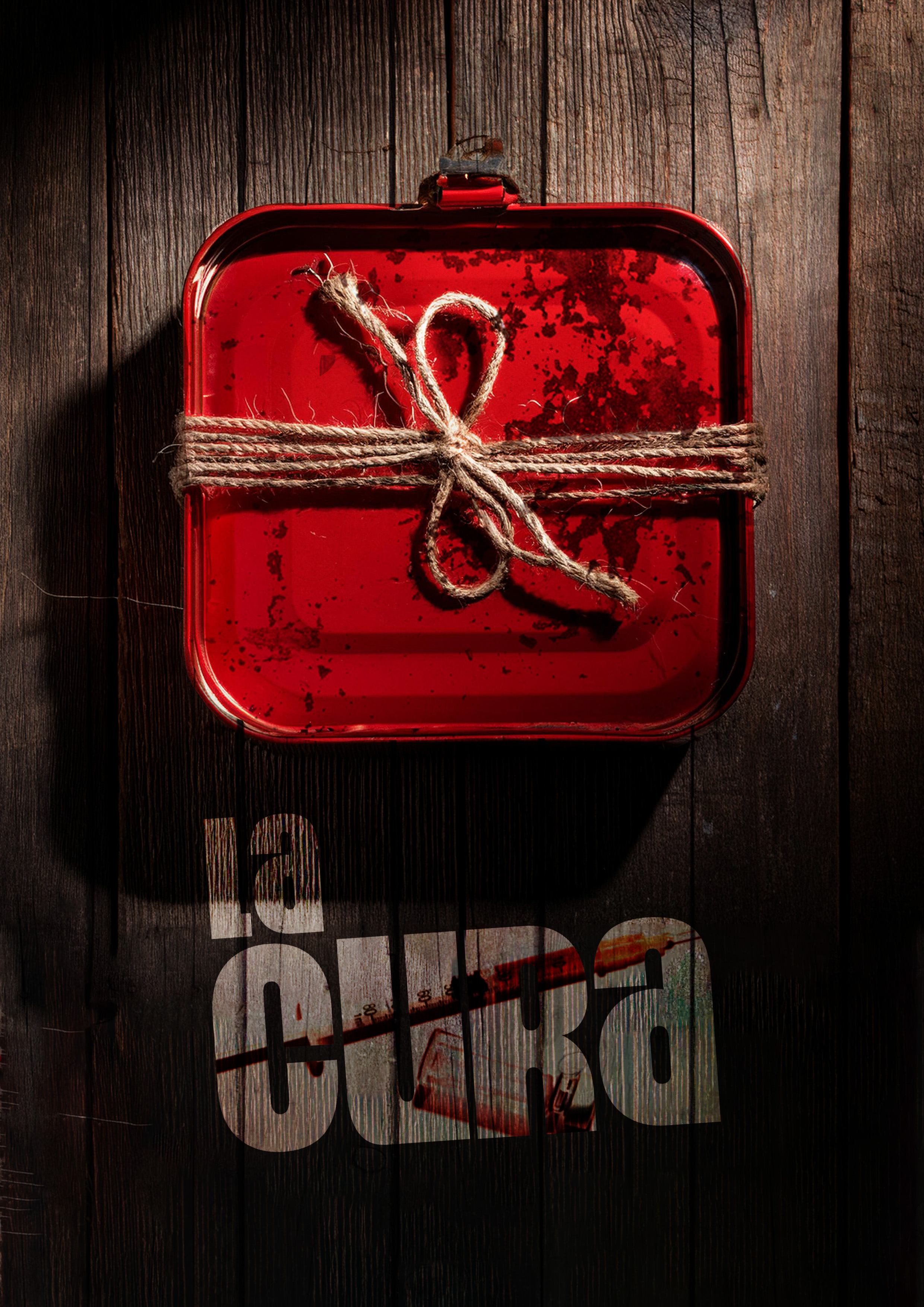Appena uscita di prigione, Maria è determinata a riprendersi suo figlio Sebastian, ormai ventenne e dipendente dall’eroina. Nel disperato tentativo di salvarlo, decide di rapirlo e ritirarsi con lui in una baita isolata nella foresta. Lontano da tutto e tutti, Maria sottopone Sebastian ad una terapia sperimentale da lei ideata, alla disperata ricerca di una cura per la sua dipendenza. Nella violenza fisica e psicologica della disintossicazione, Maria porta fino agli estremi la sua ricerca di redenzione e riconciliazione.
La cura è un thriller psicologico senza antagonista, una rappresentazione brutale ed antiretorica di un atto d’amore e di redenzione. Al centro del film c’è un rapporto madre-figlio, contaminato da anni di incomprensione e distacco, che viene improvvisamente affrontato in modo violento ed autoritario. La disintossicazione da eroina, la Cura appunto, è solo il pretesto per mettere a confronto due personaggi che incarnano il dramma universale per eccellenza, dove amore e odio sono così profondi e radicati da scatenare un conflitto viscerale e atavico. Una riflessione sull’egoismo e sull’abbandono che nasce dall’intimo dell’autore e regista Giotto Barbieri: anche lui, come il protagonista Sebastian, è stato abbandonato dalla madre in tenera età. Questo film è il frutto di anni di riflessioni, analisi ed elaborazioni personali: la potenza del racconto di Giotto risiede nella sua capacità di aver interiorizzato così profondamente i personaggi da permettere una scrittura ed una messa in scena asciutta e feroce, tragicamente vera nella sua semplicità, spogliata da artifici narrativi e formali .La caparbietà con cui Maria cerca di salvare suo figlio mostra quanto sia profondo il suo desiderio di redimersi per il dolore che ha causato a Sebastian in passato. Ma c'è di più. Maria lotta con un pensiero indicibile, che è la vera fonte del suo senso di colpa: non voleva essere madre, e ha odiato il proprio figlio per averla costretta ad abbandonare la vita che si era scelta. Maria è una Salvatrice: ha bisogno di aiutare gli altri, spesso sostituendosi ad essi, quindi svalutandone le capacità di agire, pensare e gestirsi in modo autonomo. Il suo unico modo di leggere il Mondo è questo: avendo visto ed affrontato le grandi tragedie del mondo nel suo lavoro umanitario con Medici senza Frontiere, Maria ha alzato l’asticella di considerazione del dolore altrui a livelli liminali. Solo le tragedie che separano la vita e la morte sono degne di essere colte. Ogni sfumatura sociale e relazionale diviene indegna di attenzione, e solo quando il dramma di Sebastian sfocia nella più terribile delle dipendenze, allora l’occhio di Maria si fa interessato. Questa è la scintilla che scatena l’azione di Maria, che nella sua personale chiamata alle armi riscopre di essere anche madre. Con la sua azione, Maria vuole garantire a Sebastian una “Seconda Nascita”: attraverso la sofferenza del corpo, unica espressione che Maria riconosce come importante, Sebastian può venire nuovamente al mondo. E attraverso la manipolazione della vita, una nuova nascita presuppone una nuova Madre: con l’atto di salvezza e devozione, Maria è sicura di poter cancellare il passato, di ripartire da zero, di avere una seconda occasione per essere davvero madre. La cura è una storia difficile: un film duro che non concede rassicurazioni. I suoi personaggi sono spinti al limite, e attraverso le loro azioni riconosciamo delle profonde sfumature psicologiche, le radici delle storture di ogni rapporto, gli egoismi e i rancori mai espressi. Un film sul perdono raggiunto per vie sbagliate. Un thriller tesissimo, dove l’empatia dello spettatore rimbalza a favore di vittima e carnefice, facendo emergere riflessioni sul nostro modo di vedere il dolore, in ogni sua forma e declinazione.
